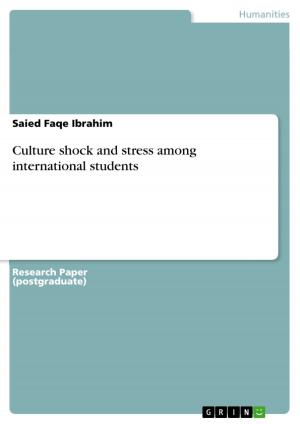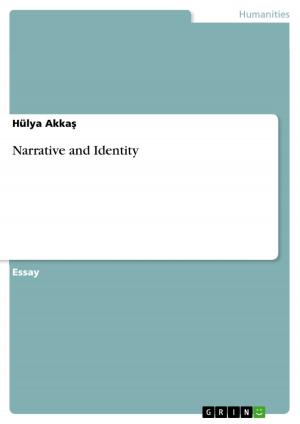The growth of uncertainty after the end of the Cold War and its impact on the security environment of states
Nonfiction, Social & Cultural Studies, Political Science, International, International Security| Author: | Natalie Züfle | ISBN: | 9783656033011 |
| Publisher: | GRIN Publishing | Publication: | October 19, 2011 |
| Imprint: | GRIN Publishing | Language: | English |
| Author: | Natalie Züfle |
| ISBN: | 9783656033011 |
| Publisher: | GRIN Publishing |
| Publication: | October 19, 2011 |
| Imprint: | GRIN Publishing |
| Language: | English |
Master's Thesis from the year 2009 in the subject Politics - International Politics - Topic: Peace and Conflict Studies, Security, grade: 2,1, Free University of Berlin (Center for Global Politics), course: International Relations Online, language: English, abstract: Uncertainty has grown considerably after the end of the Cold War. In the place of one big threat a plenitude of many 'smaller' and more incalculable risks superseded. New dangers have emerged or become more salient as compared to former times (like environmental issues, IT problems, or economic crises), while 'old' ones have not entirely vanished. The risks emanating from WMDs or the threat of wars remain existent, albeit sometimes in an altered form. Several factors have contributed to the alteration of the threat and risk pattern: in the main, the transition to a multipolar world order, the processes of globalization, and last but not least the diminishing importance of borders and of the sovereign nation-state as such are decisive. Hence, the vulnerability of civil society has increased considerably, as open societies are more risk-prone. In reaction to these developments, academics and politicians have refined the traditional concept of national security into a broader notion, considering a multitude of aspects affecting the safety of the human being as such. In consequence the classical security architecture is being adapted bit by bit to the conditions of the 21st century. On each level, i.e. the national, regional as well as international layers, diverse mechanisms have been developed - as exemplary illustrated with reference to the transnational danger of terrorism.
Master's Thesis from the year 2009 in the subject Politics - International Politics - Topic: Peace and Conflict Studies, Security, grade: 2,1, Free University of Berlin (Center for Global Politics), course: International Relations Online, language: English, abstract: Uncertainty has grown considerably after the end of the Cold War. In the place of one big threat a plenitude of many 'smaller' and more incalculable risks superseded. New dangers have emerged or become more salient as compared to former times (like environmental issues, IT problems, or economic crises), while 'old' ones have not entirely vanished. The risks emanating from WMDs or the threat of wars remain existent, albeit sometimes in an altered form. Several factors have contributed to the alteration of the threat and risk pattern: in the main, the transition to a multipolar world order, the processes of globalization, and last but not least the diminishing importance of borders and of the sovereign nation-state as such are decisive. Hence, the vulnerability of civil society has increased considerably, as open societies are more risk-prone. In reaction to these developments, academics and politicians have refined the traditional concept of national security into a broader notion, considering a multitude of aspects affecting the safety of the human being as such. In consequence the classical security architecture is being adapted bit by bit to the conditions of the 21st century. On each level, i.e. the national, regional as well as international layers, diverse mechanisms have been developed - as exemplary illustrated with reference to the transnational danger of terrorism.















